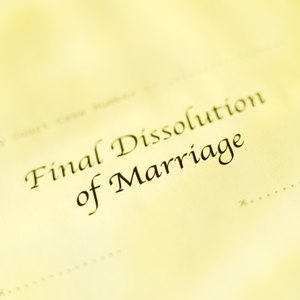
Washington is a community property jurisdiction, and courts will divide marital property and debts equitably between spouses. In community property jurisdictions, spouses own property purchased during the marriage jointly, regardless of how they title it. Spouses can agree to transfer property between them or courts can order them to transfer property. By using a quitclaim deed, one spouse can transfer ownership or title to the other divorcing spouse.
Property Law Overview
According to the common law statute of frauds doctrine, all property conveyances must be in writing, and oral transfers of property are invalid, unless they are for real estate rental agreements of one-year or less. There are several different types of legal instruments or deeds that allow parties to transfer property between one another. General warranty deeds are usually the preferred method of transfer, and most lenders require its use.
With a general warranty deed, the grantor warrants that her conveyance is with clear and free title, and that she had a right to convey it. However, a quit claim deed does not convey the same warranties and covenants of title. In fact, quitclaim deeds contain no warranties against future interests and only provide grantees with the same ownership rights as grantors possessed. Therefore, if the grantor did not legally own the property, the grantee has no legal right.
Divorce Property Distribution
Incidental to divorce, spouses must completely dispose of their marital property and debts before courts award final decrees. Washington law allows spouses and domestic registered partners to enter into written separation agreements when spouses can mutually agree upon their property rights and distribution. Additionally, Washington courts will uphold a premarital or prenuptial property agreement as long as one spouse does not challenge the terms of the agreement or the method of formation (fraud, duress or unfair bargaining).
Dividing Property Mechanics
If there is no mortgage or deed of trust on the marital home, then a quitclaim deed is generally allowable. However, if the home is secured by a mortgage, then the parties will be jointly responsible for paying the balance. Under Washington law, courts should divide property without regard to marital fault. For instance, if one spouse misbehaved by committing adultery, a court will usually divide property without considering the misbehavior. A court may provide one spouse with a larger property award if the other spouse intentionally wasted marital assets. One spouse will be responsible for signing the quitclaim deed to the other souse. However, if the recipient spouse needs to obtain a loan, the bank may deny a loan if there is no general warranty deed.
Quitclaim Forms
Quitclaim deeds are popular because they are easy to draft, which is why they are mistakenly referred to as “quick claim” deeds. Once both spouses sign the deed, they must record their quitclaim in the county where the property is located and pay recording costs and taxes, established by different county taxing authorities. The state of Washington allows parties to record their quitclaim deeds once they submit their deeds and affidavits, if required, and quitclaim owners may avoid paying local Washington taxes, as required with a general warranty deed.
Considerations
Since state laws can frequently change, do not use this information as a substitute for legal advice. Seek advice through an attorney licensed to practice law in your state.
References
- Washington Courts: Family Law Handbook; 2009
- LawHelp.org: Quitclaim Deeds and Life Estates
- HG.org. "Contracts 101—Warranty vs Quitclaim Deeds." Accessed Aug. 12, 2020.
- Realtor.com. "When Do You Need to Get a Quitclaim Deed?' Accessed Aug. 12, 2020.
- DivorceNet. "Interspousal Transfers Versus Quit Claim Deeds." Accessed Aug. 12, 2020.
- California State Board of Equalization. "Property Ownership and Deed Recording," Page 7. Accessed Aug. 13, 2020.
Writer Bio
Jill Stimson has worked in various property management positions in Maryland and Delaware. Stimson worked for the top three property management companies in the commercial industry and focuses her career on property building logistics and tenant relationships. She holds a Juris Doctor and a Bachelor of Science in psychology.

